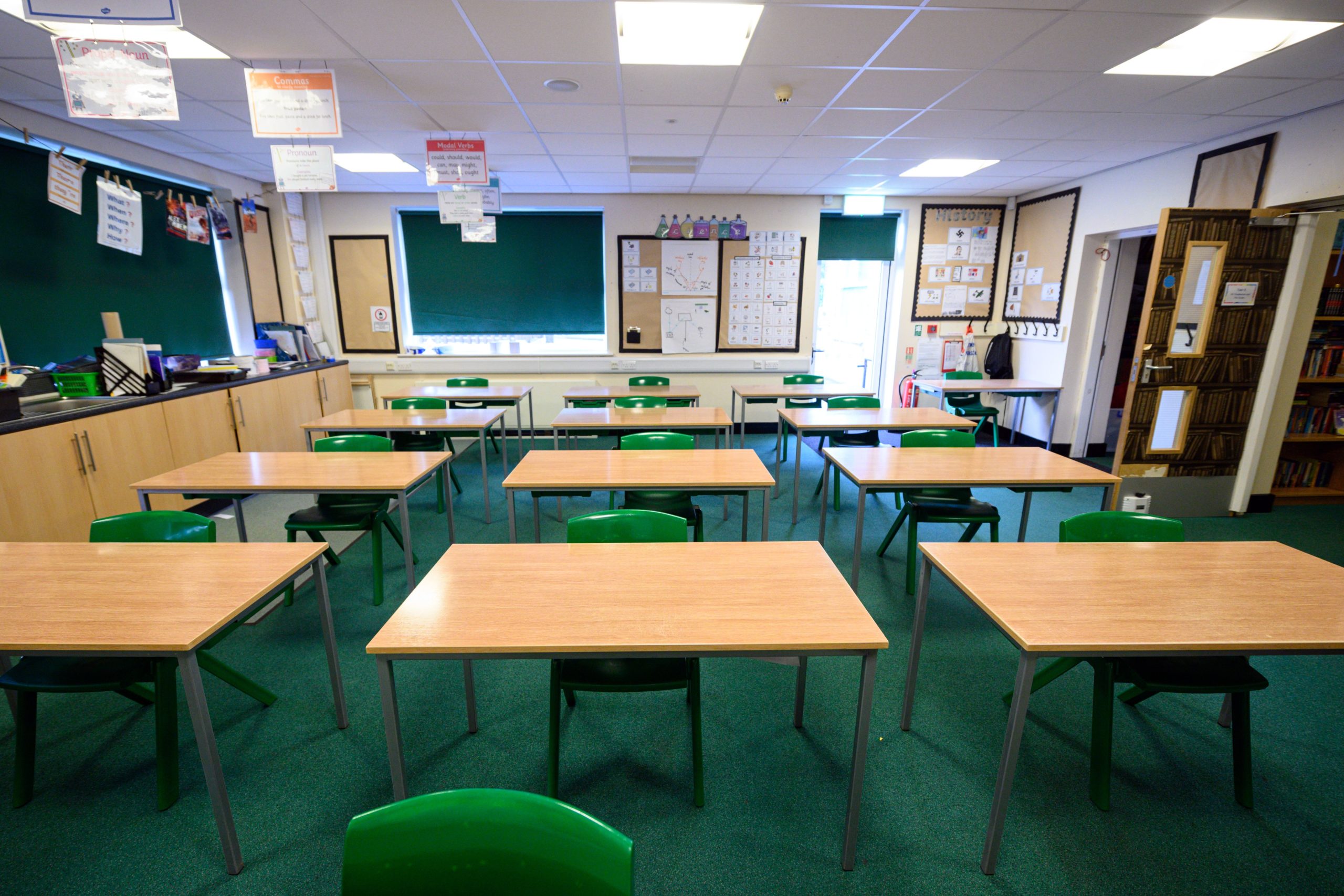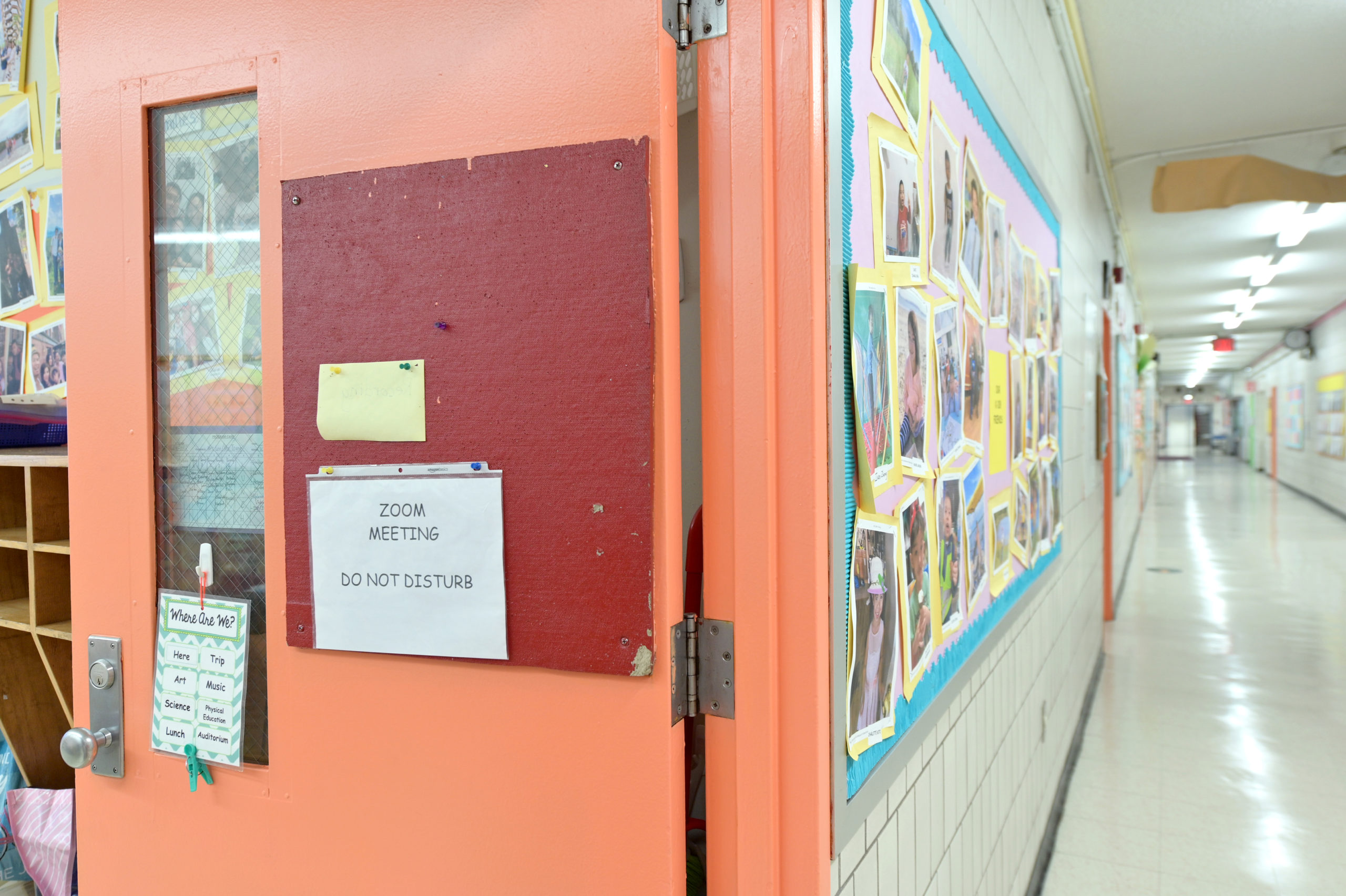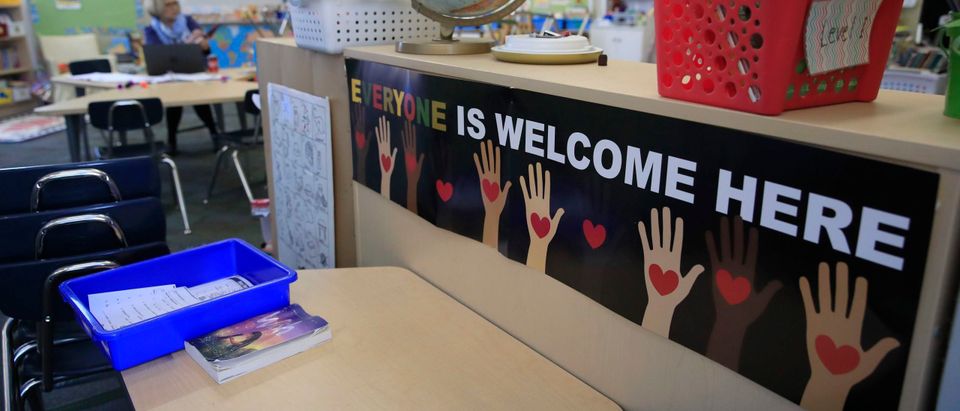“It’s definitely not sensitivity and it’s definitely not diversity. There used to be sensitivity and diversity years ago, and this is not that.”
Christopher Paslay has spent 24 years working as a Philadelphia teacher, and has a background in multicultural education. He told the Daily Caller that celebrating diversity in the classroom used to include tolerance and understanding, but schools across the country are taking a different approach to educating about different cultures by hiring “anti-racism” trainers, who accuse others of being complicit in racism.
“I think it’s gotten to the point where people fear [being accused of not participating in racial justice efforts],” Paslay said. “People still don’t know what anti-racism is. They think it’s just social justice, but they don’t know the other components to it.”
Paslay is the author of “Exploring White Fragility: Debating The Effects Of Whiteness Studies On America’s Schools.”
The trainings have a variety of names. Conservatives refer to them that as “critical “race theory” sessions. Progressives have called the sessions “sensitivity” and “diversity” training. Paslay’s book explores research and presents alternative recommendations on approaching diversity and inclusion in the classroom to bringing in guest speakers to conduct “anti-racism” trainings. While school and workplace administrators may invite such experts with admirable intentions of remedying disparities, Paslay claimed such trainings carry the potential of being counterproductive in achieving social justice.
His book is written from the perspective of a longtime educator with a background in multicultural education. Paslay has spent 24 years teaching high school English, where he crafts his lesson plans with a selection of texts and literature that represent the different cultures of his students in an effort to be inclusive, he told the Caller.

A classroom is set out with socially distanced seating for year 6 pupils but remains empty due to lack of pupils returning in that year group, at Greenacres Primary Academy in Oldham, northern England on June 18, 2020. (Photo by OLI SCARFF / AFP) (Photo by OLI SCARFF/AFP via Getty Images)
“We have a really unique, diverse group of kids. The students grow up together, and I’m a track coach so I see them in the classroom and on the track, and they get along great. They’re all friends,” he said.
While Paslay has an advanced degree in multicultural education and drew inspiration from it into his own teaching method, he’s concerned about the other approach that has seemingly gained momentum as an instructional guide.
Critical race theory, also which has also been called anti-racism, doesn’t aim to celebrate diversity, he told the Caller. Its goal is to “disrupt and dismantle,” which he said obscures underlying problems, such as single-parent households, that need to be addressed in order to achieve academic success regardless of race.
Paslay claimed diversity trainings, especially when made compulsory, can breed resentment and only cause division, giving examples from his own interviews with parents of children enrolled in a school where “White Fragility” author Robin DiAngelo had led a conference. He referenced data presented in a Harvard Business Review article:
Firms have long relied on diversity training to reduce bias on the job, hiring tests and performance ratings to limit it in recruitment and promotions, and grievance systems to give employees a way to challenge managers. Those tools are designed to preempt lawsuits by policing managers’ thoughts and actions. Yet laboratory studies show that this kind of force-feeding can activate bias rather than stamp it out. As social scientists have found, people often rebel against rules to assert their autonomy.
He also cited Dr. Mahzarin Banaji, a psychologist working in the area of implicit biases, saying that implicit bias “mandatory training has the potential for backlash.”
“The reality that decades of diversity and anti-bias training is at best inconsequential, and at worst, creating more problems — matters little to those invested in identity politics,” Paslay wrote in his book.
In recent months, Discovery Institute scholar Christopher Rufo has published a number of whistleblower documents from public schools exposing the so-called anti-racism trainings that have taken place across the country. Teachers and, in some schools, young students, are tasked with acknowledging their roles in perpetuating racism.
SCOOP: A Cupertino elementary school forces third-graders to deconstruct their racial and sexual identities, then rank themselves according to their “power and privilege.”
I’ve obtained exclusive whistleblower documents from inside the classroom. They will shock you. ????
— Christopher F. Rufo ⚔️ (@realchrisrufo) January 13, 2021
In January, Rufo published documents from an elementary school in California that allegedly showed an “identity map” that students were tasked with completing to deconstruct their racial and sexual identities. (RELATED: REPORT: Public School Instructs Third Graders To Deconstruct Their Racial And Sexual Identities To Understand ‘Power And Privilege’)
“Multiculturalism seems like it’s more about celebrating the diversity of cultures in a positive way, there was unity there. We could find a common bond. There would be a universal theme that would transcend race, religion, sexuality because there’s a common universal theme in multiculturalism,” Paslay explained.
“But it seems like with anti-racism, it’s already coming from a different place with the purpose of breaking things down to disrupt the system,” he continued.
In the book, Paslay often cited DiAngelo, a white, left-wing academic who coined the term “white fragility.” DiAngelo, Paslay argued, presents white people with the binary choice of either being racist or anti-racist, with no neutral option, meaning that white people were racist by default and had to dismantle their privilege to allow for people of color to gain advancement.
DiAngelo is known for her anti-racism sessions, which often come at a steep price. In August, the College Fix reported that DiAngelo was slated to charge $20,000 for a three-and-a-half hour racial justice workshop at the University of Connecticut that was scheduled to take place in the fall. But according to a university spokesperson, the contract was canceled and the university did not expend the funds. She had previously charged the University of Kentucky $12,000 — not counting travel expenses or any accommodations — for a two-hour “Racial Justice Keynote and breakout session” in March.
Join us, along with @parkcommunity, for a virtual event featuring Dr. Robin DiAngelo, author of New York Times Bestseller, White Fragility: Why It’s So Hard For White People to Talk about Racism on Tuesday, February 23rd.
Please RSVP by February 16th ⬇️ https://t.co/Remetiiqbi pic.twitter.com/DIomjZcm5v
— Metro United Way (@MetroUnitedWay) January 21, 2021
But the critical race theory training sessions, involving abstract thought and dense academic lingo, has also appeared in school classrooms, and Paslay said that the number of schools hosting such sessions will only grow.
In the book, Paslay mentioned when DiAngelo led a diversity conference at an elite Catholic academy in Malvern, Pennsylvania.
“[DiAngelo] concluded by saying that she understood that most of the white people participating in the conference would probably go home and do nothing, that they would forget the lecture and continue to lead their lives, refusing to become active in antiracism. She had a parting message for those people: to go home and look in the mirror, and to say to yourself, ‘I choose to collude with white supremacy.’”
Paslay picked apart common mantras espoused by DiAngelo and other anti-racist trainers, including the concept of “color blindness,” which he said was once a commendable feature of a multicultural education, but in critical race theory, is a mark of ignorance that white people use to deny racism and hold “it in place.”
He claimed that improving education begins with emphasizing the importance of family stability among all cultures, and cites research linking the presence of a father with academic achievement.

A “do not disturb” sign for zoom sessions is posted on a classroom door during the first day back to school on December 07, 2020 at Yung Wing School P.S. 124 in New York City. (Photo by Michael Loccisano/Getty Images)
“These values transcend race,” he told the Caller. “The values that make people successful like a two parent family transcend race and culture. I think that others, for political reasons, have made it about race.”
“You’re trying to help the kids. I would agree that some systemic racism is part of the equation. But then there’s other parts of the equation that you need to look at, like family structure, and if you ignore them you’re just hurting the kids.”
Paslay said that the leaked reports to the press, such as those shared by whistleblowers with Rufo, are going to provoke pushback from parents and the public, who may not be aware that subjects like critical race theory are being taught to teachers or students.
There may even be litigation — Rufo announced a coalition of legal foundations and private attorneys who will be fighting critical race theory in courts with the goal of having it established as a violation of the Civil Rights Act of 1964.
Today, President Biden doubled-down on critical race theory in the federal government.
In response, I am announcing a new coalition of legal foundations and private attorneys that will wage relentless legal warfare against race theory in America’s institutions.
The fight is on. pic.twitter.com/JZJYpjla1k
— Christopher F. Rufo ⚔️ (@realchrisrufo) January 20, 2021
“I think it’s definitely a lucrative industry and I think it’s been lucrative for longer than we know, because it’s been under the radar,” Paslay told the Caller, explaining why he believes critical race theory, with all of its iterations and labels, will continue being brought to classrooms secretly. Parents and teachers who want an inclusive approach to education shouldn’t wait until the issue works its way up the court system, either, he said.
Parents at Dalton Sch. fight back against “anti-racist” agenda: “Every class has had an obsessive focus on race & identity, “racist cop” reenactments in science, “de- centering whiteness” in art, learning about white supremacy in health…Many of us do not feel welcome any more.” pic.twitter.com/zCSc0ivRiY
— Megyn Kelly (@megynkelly) January 27, 2021
“I think [parents and teachers] should not sit still and be silent. I think they should speak their minds in a positive, tactful way. They should call administrators and tell them that they agree with the goal but not necessarily how to go about the goal. I think most people are on the same page with the goal, we want racial justice and inclusion.”












